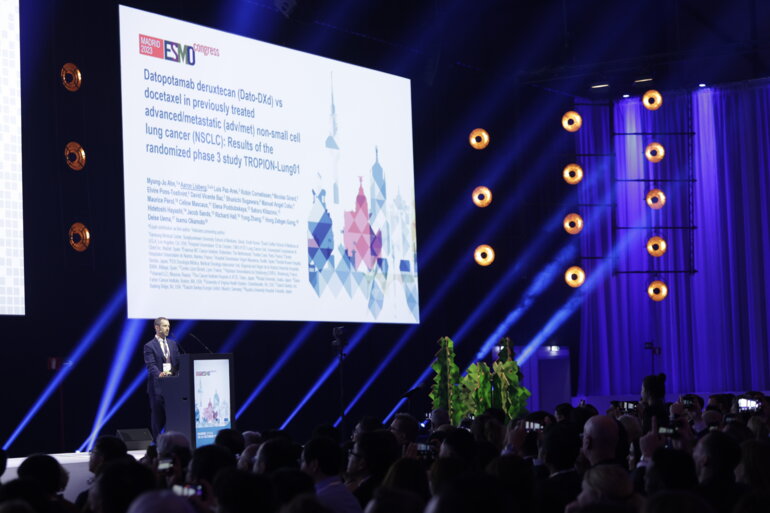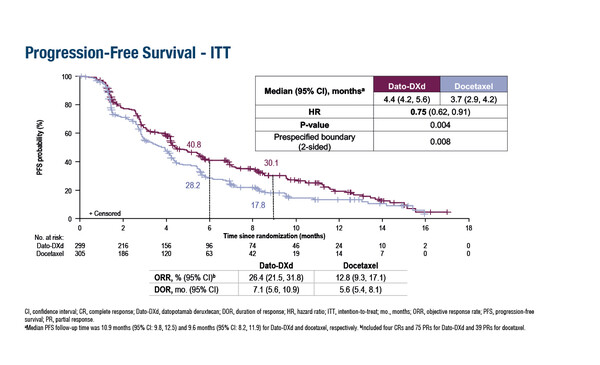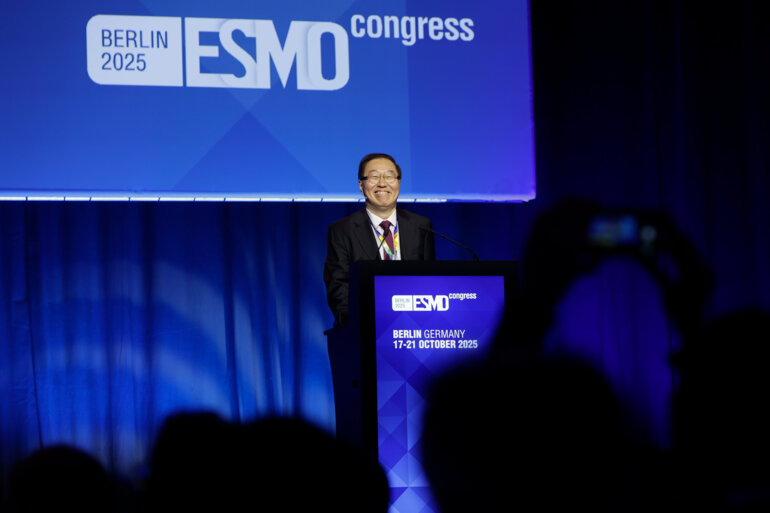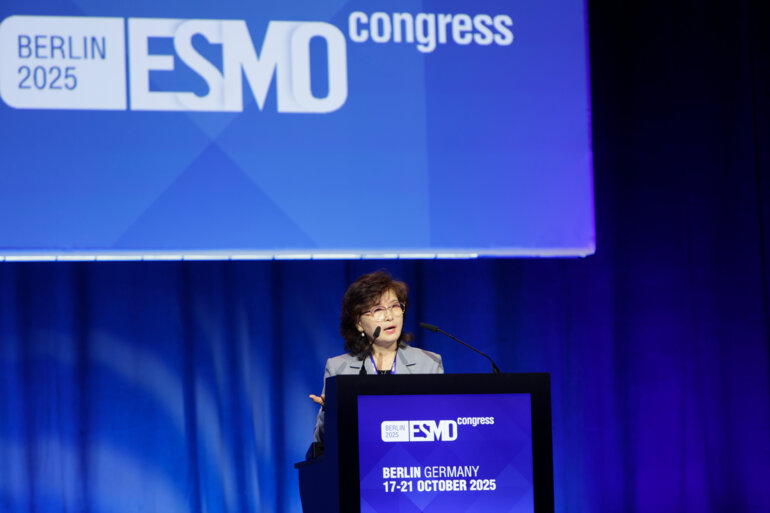The TROP2-directed ADC improved PFS with reduced toxicity compared with chemotherapy in the TROPION-Lung01 trial, but results are not practice-changing
As presented in a Presidential Symposium at the ESMO Congress 2023 (Madrid, 20–24 October), median progression-free survival (PFS) was longer with the antibody–drug conjugate (ADC), datopotamab deruxtecan than with docetaxel (4.4 months versus 3.7 months; hazard ratio [HR] 0.75; 95% confidence interval [CI] 0.62–0.91; p=0.004) in previously treated patients with advanced non-small-cell lung cancer (NSCLC) (LBA12). The trial involved 604 patients, of whom 57% had one prior line of therapy, 35% had received two lines and 88% had previously received an immune checkpoint inhibitor (ICI).
Interim data for the co-primary endpoint of overall survival (OS) were 12.4 months with datopotamab deruxtecan and 11.0 months for docetaxel (HR 0.90; 95% CI 0.72–1.13). Confirmed objective response rates (ORR) were 26.4% with datopotamab deruxtecan and 12.8% with docetaxel, with median durations of response of 7.1 months and 5.6 months, respectively. The most common treatment-related adverse events (TRAEs) seen with datopotamab deruxtecan were stomatitis (47%, mostly grade 1–2) and nausea (34%). Of note, fewer grade ≥3 TRAEs leading to dose reduction or discontinuation were seen with datopotamab deruxtecan than docetaxel.
As discussed in her editorial, Prof. Noemí Reguart from the Hospital Clínic Barcelona, Spain highlights that few second-line options currently exist for patients after progression on ICI, and for this reason, she is disappointed by the findings of TROPION-Lung01. “We had high hopes that this study would be the first one in a long while to actually change clinical practice – our need for more potent therapies in the second-line setting fuelled our excitement. The absolute increase in PFS in the intention-to-treat population is brief, at just one month, and with interim data, the co-primary endpoint of OS has not been attained. Even though the trial is still maturing for OS, there is little hope that they will succeed in achieving OS gain.”
In pre-specified subgroup analyses, the HRs for PFS and OS were particularly low with datopotamab deruxtecan versus docetaxel in patients with non-squamous histology (PFS: HR 0.63 versus 1.38 with squamous histology; OS: HR 0.77 versus 1.32 with squamous histology). These findings give Reguart hope: “Although this is a subgroup analysis, the benefits for patients with non-squamous NSCLC seem to be better and provide valuable insight for refining patient selection in future trials.” The TROPION-Lung01 trial continues to its final analysis. Reguart also points to other ongoing trials, including TROPION-Lung07 (NCT05555732) and TROPION-Lung08 (NCT05215340), which are evaluating combinations of datopotamab deruxtecan with ICIs, with or without chemotherapy, as potential first-line treatment options to improve on the level of activity and duration of response of current first-line immunotherapy.
Abstrac discussed:
Ahn M-J, et al. Datopotamab deruxtecan (Dato-DXd) vs docetaxel in previously treated advanced/metastatic (adv/met) non-small cell lung cancer (NSCLC): results of the randomized phase 3 study TROPION-Lung01. ESMO Congress 2023, LBA12
Presidential Symposium 3, 23.10.2023, h. 16:30 – 18:15, Madrid Auditorium – Hall 6







